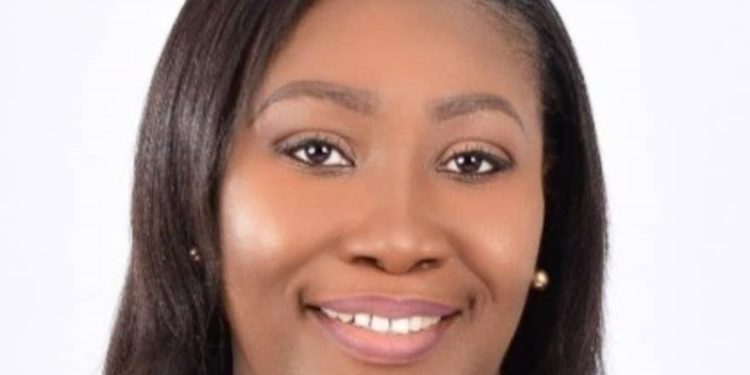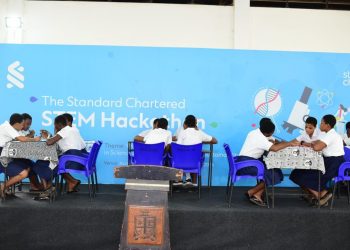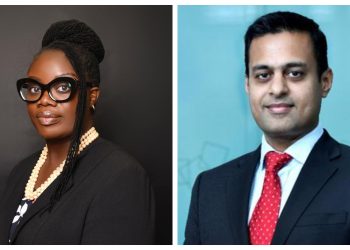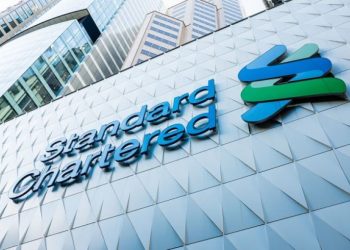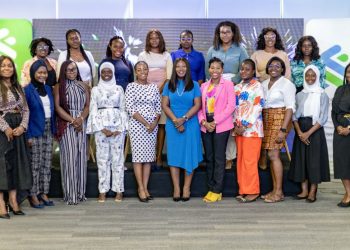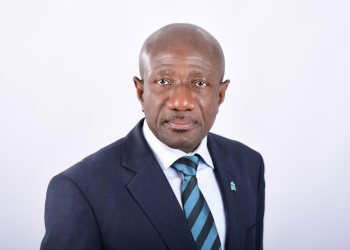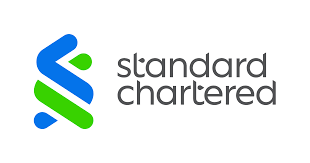Looking at the bill in her hands, Naa Lamley knew that her single mother could not afford to pay her university tuition. From the bedroom that she shared with her two younger sisters, she could see the office complexes dotting Accra’s skyline, those same buildings in which she had worked as a cleaner after she graduated from senior high school.
She had fantasised about being like one of the smart suited ladies she greeted on her way to her floor, breaking the poverty cycle that most of the people in her community were trapped in. With each glance down at the figures on the tear-stained sheet that would seal her fate, her hope for salvation faded a little bit more. Without a helper, her future was bleak.
Naa Lamley’s story is not unique.
Like most countries in Africa, Ghana has a young population. According to recent statistics, about 60% of Ghanaians are under the age of 25. While this shows the immense potential of the country, it also presents a challenge, with many young people grappling with unemployment, underemployment, and inadequate skill sets, which often hamper their prospects. Social and economic inequality, and the growing income gap in many African countries, continue to impact the poorest individuals. Unfortunately, the interruptions to business that came with the COVID-19 global pandemic have made this worse, with the youth being the most affected. The reality, though, is that more young women than young men stand to lose in the long run.
Harnessing the potential of this youth bulge is crucial to unlocking the socio-economic impact that can propel our nation forward. The only way out is to provide the youth with the tools, opportunities, and platforms necessary to thrive in a rapidly evolving global landscape. Recognising this urgent need, various stakeholders in Ghana – private and public – have been championing initiatives aimed at empowering the youth through economic inclusion.
Though there is growing support, many rural youth and the urban poor often find themselves trapped in a cycle of limited opportunities. However, beneath the lack and inadequacy, this is a vibrant demographic. There is an iron will to not just survive, but to thrive as well. Consciously and unconsciously, they develop abilities which would serve them well, should the right opportunity come their way. Even among street hawkers, they pick up traits and skills that help them to experience relative success in a tightly competitive environment with few winners: negotiation, consumer analysis, tenacity.
Therefore, with a sense of community and an eye to the future, we can be intentional in developing transformative initiatives that open doors and brings hope to young lives.
Unlocking Potential: The Power of Economic Inclusion
The theme for this year’s World Youth Skills Day is, “Empowering Teachers, Trainers and Youth for a Transformative Future.” As has been repeated for decades, and at the risk of sounding repetitive, the youth are the future.
To harness the untapped potential of Ghana’s youth, it is important to prioritise economic inclusion. By providing equal access to education, skills training, and employment opportunities, we empower the youth to contribute their quota. Economic inclusion serves as a catalyst for social mobility, reducing inequality and creating a more inclusive and prosperous society.
Education and skill development are crucial pillars in empowering the youth for success. By investing in quality education, vocational training, and STEM programmes, Ghana can bridge the skills gap and equip young individuals with the necessary tools to thrive in the digital era. Fostering a culture of lifelong learning and providing platforms for continuous skill development will benefit the youth directly.
Empowering the youth through innovation and entrepreneurship:
Ghana stands at a crucial juncture where economic inclusion and empowerment of the youth can unlock immense socio-economic impact. By providing opportunities, skills, and platforms for young Ghanaians to succeed, we shape a future where the nation’s youth shine brightly, contributing to Ghana’s growth, prosperity, and global competitiveness.
Entrepreneurship plays a pivotal role in driving economic growth and job creation and fortunately, Ghana’s youth supported by numerous incubator and accelerator programmes have embraced entrepreneurship wholeheartedly. By growing a vibrant start-up ecosystem that nurtures young entrepreneurs, Ghana can unlock a wave of innovation and creativity. Providing access to affordable financing, business support services, apprenticeship, and mentorship programmes, while growing their confidence, will enable young innovators to transform their ideas into successful ventures, contributing to Ghana’s entrepreneurial landscape and economic prosperity.
Let us embrace the potential within our youth, invest in their dreams, and together, build a brighter future for Ghana.
Building Ghana’s youth through Futuremakers
Futuremakers by Standard Chartered, is our global initiative to tackle inequality and promote greater economic inclusion for disadvantaged young people in our communities. Through training, skill development, mentorship, seed funding for businesses, we aim to build the capacity of young people to access jobs and economic opportunities that will help close the inequality gap.
Futuremakers supports young people from low-income households, particularly girls and people with visual impairments.
We deliver Futuremakers through four community programmes focused on education, employability, and entrepreneurship.
Goal is our global education programme for girls and young women, teaching life skills through sport.
Youth to Work creates opportunities to support young people to become job ready.
Women in Technology Incubator support female-led entrepreneurial teams with business management training, mentoring and seed funding.
Youth Employability Skills provides entrepreneurial and employability skills to young people.
Since the launch of Futuremakers in 2019 in Ghana, together with the Standard Chartered Foundation, we have invested over GHS 1 million through various programmes to support over 40,000 young people to learn, earn and grow.
And while the impact can be measured by figures, the programme’s true value is found in the huge difference it is making in the lives of real young people in Ghana, as well as the influence they are leaving in their respective communities.
And that’s a future worth funding.
–
The Asiedua Addae is the Head of Corporate Affairs, Brand and Marketing for Standard Chartered Bank Ghana PLC.






